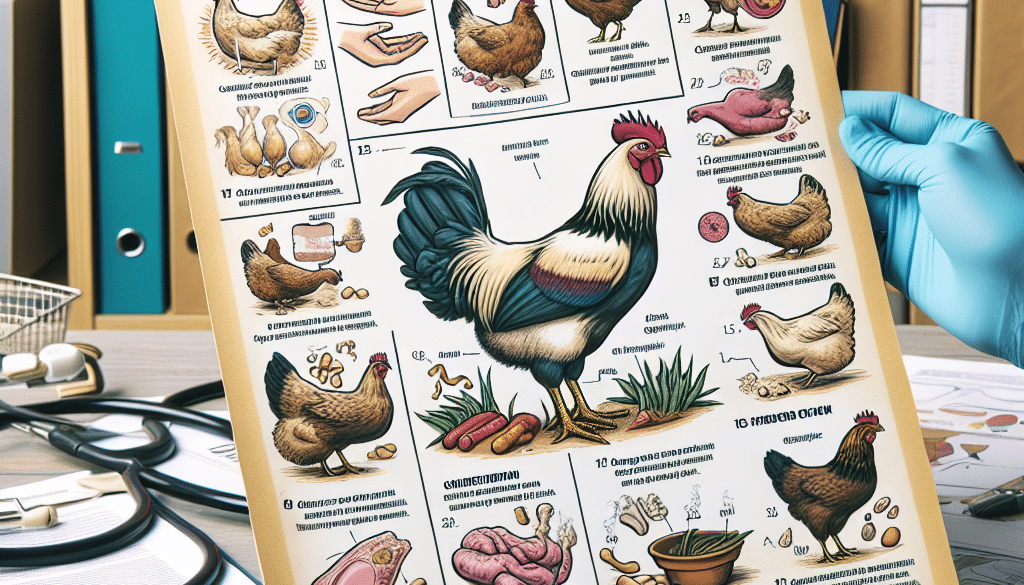Symptoms of Too Much Protein in Chickens: Health Guide
-
Table of Contents
- Understanding the Symptoms of Too Much Protein in Chickens: A Comprehensive Health Guide
- Symptoms of Excessive Protein in Chickens
- Health Risks Associated with High Protein Diets in Chickens
- Case Studies and Statistics
- Managing Protein Intake in Chicken Diets
- Conclusion: Balancing Protein for Healthy Chickens
- Recommended Protein Products from ETprotein
Understanding the Symptoms of Too Much Protein in Chickens: A Comprehensive Health Guide
Chickens are a staple in many diets around the world, not only as a source of meat but also for their eggs. As such, their health and well-being are of paramount importance to both poultry farmers and hobbyists. One aspect of chicken health that requires attention is their dietary protein intake. While protein is essential for growth and egg production, too much of it can lead to health issues. This article explores the symptoms of excessive protein in chickens, the potential health risks, and how to manage their diet effectively.
Symptoms of Excessive Protein in Chickens
Identifying the signs of too much protein in your chickens’ diet is crucial for maintaining their health. Here are some common symptoms to watch out for:
- Kidney Damage: High protein levels can overwork the kidneys, leading to damage and potential kidney failure.
- Dehydration: Increased protein intake requires more water to process, which can cause dehydration if water intake is not sufficient.
- Gout: Excess protein can result in the buildup of uric acid, leading to gout, a painful condition affecting the joints.
- Reduced Egg Quality: Overconsumption of protein can negatively impact eggshell quality and egg production rates.
- Behavioral Changes: Chickens with a high-protein diet may exhibit changes in behavior, such as increased aggression or lethargy.
Health Risks Associated with High Protein Diets in Chickens
Understanding the health risks associated with high protein diets in chickens is essential for preventing long-term damage. Here are some potential health complications:
- Renal Disease: Chronic kidney disease can develop from the strain of processing excess protein.
- Uric Acid Deposits: High levels of uric acid can lead to visceral gout, where deposits form on internal organs.
- Imbalanced Nutrition: A diet too rich in protein can lead to deficiencies in other nutrients, affecting overall health.
- Obesity: Excessive protein can contribute to weight gain, leading to obesity and related health issues.
Case Studies and Statistics
Research has shown that dietary imbalances, including too much protein, can have significant effects on poultry health. For instance, a study published in the “Journal of Animal Physiology and Animal Nutrition” found that high-protein diets could lead to increased mortality rates in chickens due to kidney-related issues. Additionally, industry statistics indicate that optimal protein levels for chickens vary depending on their age, breed, and purpose (meat production vs. egg-laying), highlighting the importance of tailored diets.
Managing Protein Intake in Chicken Diets
To ensure the health of your chickens, it’s important to manage their protein intake effectively. Here are some tips:
- Consult a Veterinarian or Poultry Nutritionist: They can provide guidance on the appropriate protein levels for your flock.
- Use Balanced Feeds: Choose feeds that are formulated for the specific needs of your chickens, considering their age and purpose.
- Monitor Water Intake: Ensure that chickens have constant access to clean water, especially when on higher protein diets.
- Adjust Diets Seasonally: Protein requirements may change with the seasons, so adjust feeds accordingly.
- Observe Your Flock: Regularly monitor your chickens for any signs of health issues and adjust their diet if necessary.
Conclusion: Balancing Protein for Healthy Chickens
In conclusion, while protein is an essential part of a chicken’s diet, it’s important to avoid overconsumption. By recognizing the symptoms of too much protein and understanding the associated health risks, poultry keepers can take proactive steps to ensure their chickens remain healthy. Regular consultation with professionals, careful selection of feeds, and attentive care can help maintain the right balance of nutrients in your chickens’ diet.
Recommended Protein Products from ETprotein
If you’re looking for high-quality protein sources for your chickens, consider ETprotein’s range of products. Their organic and non-GMO protein options provide a balanced nutritional profile that can be tailored to your flock’s specific needs. With a focus on sustainability and quality, ETprotein’s offerings are an excellent choice for conscientious poultry keepers.
About ETprotein:
ETprotein, a reputable plant protein vegan protein Chinese factory manufacturer and supplier, is renowned for producing, stocking, exporting, and delivering the highest quality organic bulk vegan protein and plant proteins. They include Organic rice protein, clear rice protein, pea protein, clear pea protein, watermelon seed protein, pumpkin seed protein, sunflower seed protein, mung bean protein, peanut protein etc. Their offerings, characterized by a neutral taste, non-GMO, allergen-free attributes, cater to a diverse range of industries. They serve nutraceutical, pharmaceutical, cosmeceutical, veterinary, as well as food and beverage finished product distributors, traders, and manufacturers across Europe, USA, Canada, Australia, Thailand, Japan, Korea, Brazil, and Chile, among others.
ETprotein specialization includes exporting and delivering tailor-made protein powder and finished nutritional supplements. Their extensive product range covers sectors like Food and Beverage, Sports Nutrition, Weight Management, Dietary Supplements, Health and Wellness Products, and Infant Formula, ensuring comprehensive solutions to meet all your protein needs.
As a trusted company by leading global food and beverage brands and Fortune 500 companies, ETprotein reinforces China’s reputation in the global arena. For more information or to sample their products, please contact them and email sales(at)ETprotein.com today.












